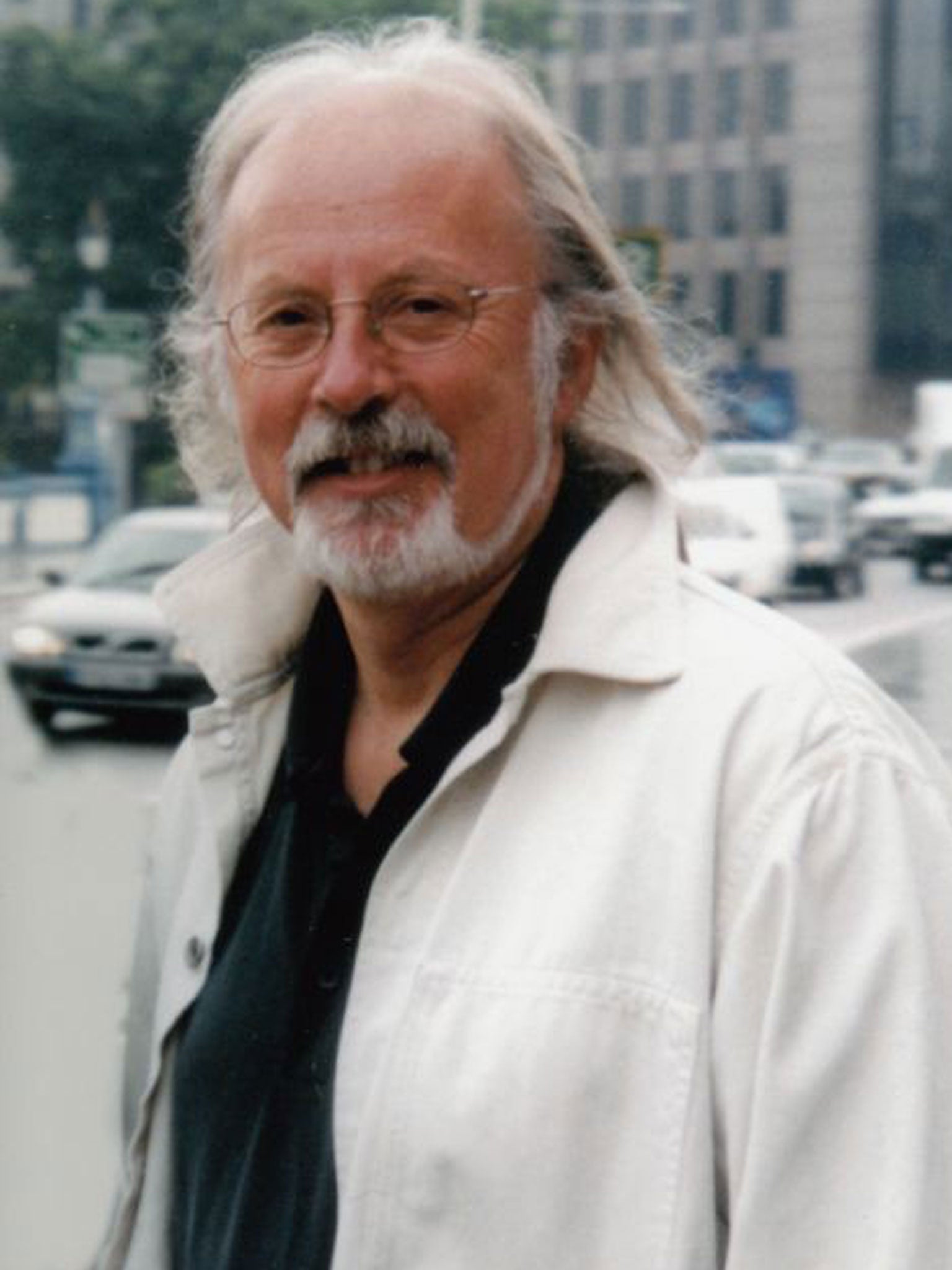Bill Fitzgerald: Influential Cambridge professor who did groundbreaking work in the field of signal processing

Your support helps us to tell the story
From reproductive rights to climate change to Big Tech, The Independent is on the ground when the story is developing. Whether it's investigating the financials of Elon Musk's pro-Trump PAC or producing our latest documentary, 'The A Word', which shines a light on the American women fighting for reproductive rights, we know how important it is to parse out the facts from the messaging.
At such a critical moment in US history, we need reporters on the ground. Your donation allows us to keep sending journalists to speak to both sides of the story.
The Independent is trusted by Americans across the entire political spectrum. And unlike many other quality news outlets, we choose not to lock Americans out of our reporting and analysis with paywalls. We believe quality journalism should be available to everyone, paid for by those who can afford it.
Your support makes all the difference.Bill Fitzgerald, Professor of Applied Statistics and Signal Processing in the Department of Engineering at Cambridge University, played a central role in establishing Bayesian statistical theory as the bedrock of modern signal processing theory and practice. He achieved this not only through his own seminal scientific contributions but by inspiring a long line of PhD students who went on to develop the concepts further in academic, industrial and financial organisations worldwide.
Fitzgerald read physics at the University of Birmingham, followed by an MSc in the Physics of Solids and a PhD in the same area. Following his doctorate work he was appointed to a one-year research fellowship at Birmingham which enabled him to continue with his research and take on some undergraduate teaching.
For the next 10 years he worked at various research institutes and universities in France, Switzerland and Ireland. It was while working at the Institut Laue-Langevin in Grenoble that he met Marianne Klein, then a student, who was to become his wife.
Returning to England in 1983 he accepted a post at Schlumberger Cambridge Research laboratory. He brought his relentless enthusiasm to bear on understanding the roles of mineralogy, physics and chemistry in the development of anomalously high (and dangerous) pore pressures in the shales overlying many oil and gas reservoirs. His scientific skills were superb and he rapidly became highly respected among his scientific peers; his frequent seminars were popular and always illuminating.
In 1985 he became Principal Scientist at the Marconi Maritime Applied Research Laboratory in Cambridge. He was head of the Mathematical Modelling and Signal Processing Group and worked with a number of university research groups, in particular the Signal Processing Group at Cambridge University, where he gave a number of seminars and worked on collaborative research projects.
While working on sonar beam-forming he began to formulate his ideas for applying Bayesian statistical theory to such problems – and this became the focus of his research for the rest of his career. In 1990 he was appointed to a lectureship in the Department of Engineering at Cambridge, closely followed by election to a Fellowship at Christ's College.
It was at Cambridge that he was able to develop his ideas on Bayesian statistical methodology applied to signal processing. His boundless enthusiasm and insight soon influenced his colleagues and students; the Signal Processing Laboratory developed an international reputation as a place where exciting things were happening in signal processing and in the underlying statistical theory and practice. Not content with simply spreading his ideas among the established scientific community, he gave a number of well-received undergraduate courses which had a distinctly Bayesian flavour.
His research work was at the interface of engineering and mathematics and he was making contributions in both areas with numerous invitations to address conferences in both signal processing and statistics. In 1998 he proposed and was principal organiser of a six-month study workshop on Nonlinear and Nonstationary Signal Processing at the Newton Institute for Mathematical Sciences in Cambridge. This intensive workshop brought together engineers, physicists and mathematicians from all over the world. He had now become a major figure in his subject, with promotion to a Readership in 2000 and then a personal Professorship following in 2002. In the last few weeks of his life he was awarded the European Association for Signal Processing Technical Achievement Award for his contributions in applications of Bayesian theory in signal processing.
Although his work was based on complex mathematical ideas, it always had relevance to the real world and his ideas engendered two business ventures, Featurespace and Darktrace, both of which promise to be major technology businesses. He was also a mentor to many others who were commercializing their research, including the Cronto team. We can expect the legacy of his Bayesian work to have a significant impact as these businesses grow – and his influence as a Bayesian champion to be reflected in many future systems which affect our lives.
No account of Bill Fitzgerald's life could be complete without reference to his deep love of music and his quite remarkable talent for learning a new instrument. Among the instruments that he could play are violin, classical guitar, flamenco guitar, ukulele, hurdy gurdy, flute and a number of different types of bagpipes, including Scottish, Greek and Aeolian pipes. His love of music was so important that at an early stage of his career he thought that he might like to be a rock guitarist – but science was truly his first love.
Above all, Bill Fitzgerald was an inspirational character who was much respected, much loved and will be sorely missed by his family and his many friends, students and colleagues.
He is survived by his wife Marianne, sons Mathew, Thomas and Daniel and two grandsons.
William (Bill) J Fitzgerald, statistician: born London 1 August 1948; married Marianne Klein (three sons); died Cambridge 2 April 2014.
Join our commenting forum
Join thought-provoking conversations, follow other Independent readers and see their replies
Comments